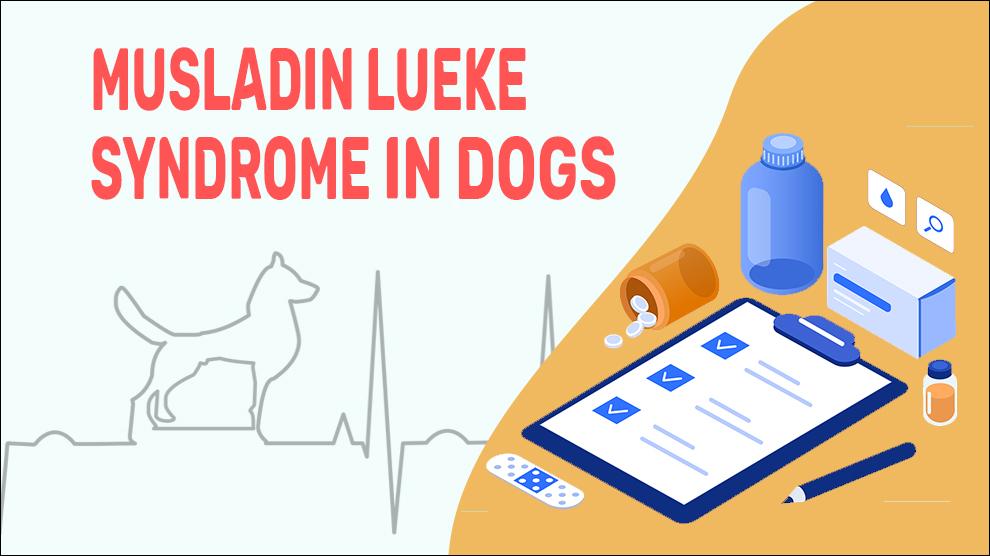What Is Musladin Lueke Syndrome In Dogs?
Musladin-Lueke Syndrome (MLS) is a rare genetic disorder that affects some breeds of dogs.
It is caused by a mutation in the extracellular matrix protein 1 (ECM1) gene, which is responsible for producing a protein that is important for the development and maintenance of tissues in the body.
MLS primarily affects small dog breeds, such as Beagles, Pugs, and Boston Terriers. There is no cure for MLS, but treatment options are available to manage symptoms.
Responsible breeding practices and regular veterinary check-ups are important for reducing the incidence of MLS and ensuring the best possible quality of life for affected dogs.
If you suspect that your dog may have MLS, it is important to see a veterinarian for a proper diagnosis and treatment plan.
Symptoms Of Musladin Lueke Syndrome In Dogs
Symptoms of MLS may include:
- Stiffness and weakness in the legs
- Reduced mobility
- Lameness
- Painful joints
- Short stature
- Dental abnormalities
- Vision and hearing problems
- Skin lesions
Treatment Options For Musladin Lueke Syndrome In Dogs
There is no cure for MLS, and treatment options are primarily aimed at managing symptoms.
Treatment may include pain management medication, physical therapy, and surgery to address dental and joint issues.
Regular veterinary check-ups are important for monitoring your dog's condition and adjusting treatment as necessary.
Home Remedies For Musladin Lueke Syndrome In Dogs
As a genetic disorder, there are no home remedies for MLS. However, responsible breeding practices can help reduce the incidence of the disorder in future generations.
If you are considering breeding your dog or adopting a purebred puppy, it is important to work with a reputable breeder who screens their breeding dogs for MLS and other genetic disorders.
How To Prevent Musladin Lueke Syndrome In Dogs?
Musladin-Lueke Syndrome (MLS) is a genetic disorder that affects dogs. To prevent this syndrome, responsible breeding practices are crucial.
Breeders should work with a veterinarian or a genetic counselor to perform genetic testing and ensure that their breeding dogs are free of the MLS gene mutation.
Additionally, dog owners should provide proper nutrition, exercise, and veterinary care to support their pet's overall health and well-being.
Affected Dog Breeds Of Musladin Lueke Syndrome
Beagle, Pug, Boston Terrier
Facts For Musladin Lueke Syndrome In Dogs
Facts about Musladin-Lueke Syndrome in dogs:
- MLS primarily affects small dog breeds, such as Beagles,Pugs, and Boston Terriers.
- The disorder causes stiff and weak legs, reduced mobility, painful joints, short stature, dental abnormalities, vision and hearing problems, and skin lesions.
- There is no cure for MLS, and treatment options are primarily aimed at managing symptoms.
When To See A Vet For Musladin Lueke Syndrome In Dogs?
If you suspect that your dog may have MLS, it is important to see a veterinarian for a proper diagnosis and treatment plan.
Your veterinarian may perform genetic testing to confirm a diagnosis of MLS or other genetic disorders.
They may also recommend imaging tests, such as X-rays or CT scans, to evaluate your dog's bone and joint health.
Food Suggestions For Musladin Lueke Syndrome In Dogs
Food suggestions for dogs with MLS may include a balanced diet that supports joint health and mobility. Some dog food brands also offer specialized diets that are formulated to support joint health and mobility.
Conclusion
In conclusion, Musladin-Lueke Syndrome is a rare genetic disorder that affects some breeds of dogs, primarily small breeds such as Beagles, Pugs, and Boston Terriers.
There is no cure for MLS, and treatment options are primarily aimed at managing symptoms.
Responsible breeding practices, regular veterinary check-ups, and a balanced diet that supports joint health may help prevent and manage the disorder.
If you suspect that your dog may have MLS, it is important to see a veterinarian for a proper diagnosis and treatment plan

















